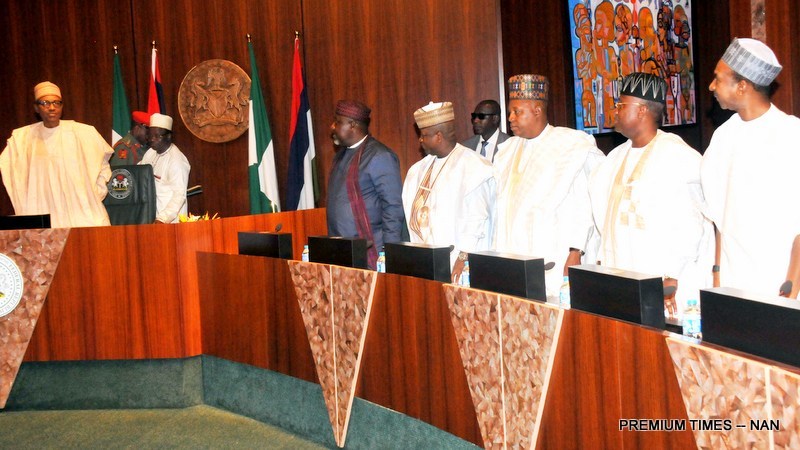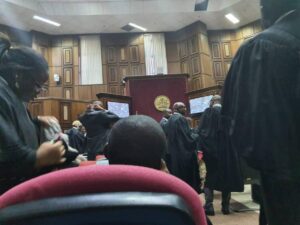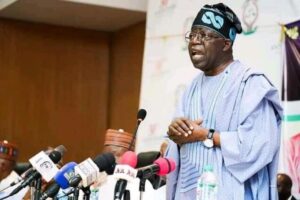
Wait for a second, imagine how much your state received from the monthly Federal Account Allocation Committee (FAAC) disbursement in December 2018. Stretch your thoughts to your local government as well. What numbers do you come up with?
Hold your guess now. As the chart below clearly shows, the fact is, if you are not from Osun State, then your state received over N2.4 billion, and if you are not from Delta State, your state treasury received an amount definitely below N21 billion in December 2018.
If the monies were actually shared to states equally, your state would have received N6.4 billion. Your local government would have also had a minimum of N118 million or a maximum of N741.8 million.
FAAC Allocation To State, Criteria
A recent analysis of the FAAC distribution to states and local governments of the federation in the last 12 years provides interesting insights into the revenue distribution matrix of the country.
Dataphyte Analytics report revealed that the 36 states shared N25.03 trillion cumulatively, and each earned an average of N109.37 billion between 2007 and 2018. The total share of each state within this period is shown in the map below and you can see the dataset here
FAAC distributes revenue from the federation account thus: the federal government 52.68 per cent, the 36 state governments share 26.72 per cent, while 20.60 per cent is given to the 774 local governments in the country. It also distributes the revenue from Value Added Tax (VAT) thus: the federal government, 15 per cent; state governments all share 50 per cent; and the local governments share get 35 per cent.
However, the general criterium that differentiates the amount one state government receives from the other is the population size of the state. FAAC disbursement to a state is meant to be directly proportional to its population, and, consequently, the number of local governments in the state.
This is the reason why these five highly populated states – Lagos, Kano, Kaduna, Katsina, and Borno rank among the top 10 beneficiaries from the FAAC allocation till between 2007 and 2018, as seen in the chart below.
Within this period, Lagos, Kano, Kaduna, Katsina received N1.10 trillion, N808.10 billion, N627.93 billion and N608.57 billion respectively. Borno, the least on the top 10 got N601.66 billion.
Then, there is the special criteria, which allocates an additional 13 per cent derivation from the net oil revenue exclusively to oil-producing states.
This is the only reason why these other five states, namely, Akwa Ibom, Rivers, Delta, Bayelsa, and Ondo, rank among the top 10 earners too. As shown in the chart above, Akwa Ibom, Rivers, and Delta got N2.36 trillion, N2.26 trillion, and N1.86 trillion in that order while Bayelsa and Ondo had N1.48 trillion and N731 billion respectively.
FAAC revenue cum development of individual states
While the K states – Kano, Kaduna and Katsina seem to walk away from FAAC each month with big bags, thanks to their population, it all amounts to little, considering the per capita (or revenue per head) implication.
For instance, even though Kano, Kaduna and Katsina got more money than the oil-producing Abia or Imo, it only amounted to a 12-year aggregate revenue per capita of N128,970, N140,633 and N160,239 (at the 36th, 35th and 30th positions) respectively while Abia, Edo, Imo and Cross River – got a 12-year aggregate revenue per capita of N223,588, N210,686, N187,548 and N203,584 (11th, 12th, 22nd and 16th positions) respectively.
These statistics show that increasing state population without developing individual state resources will not suffice in the long run.
Each state in Nigeria has an area of comparative economic advantage that could be tapped into, both in human and natural resource, to create the wealth of their own. Higher productivity, whether in the exploration of mineral resource or through full employment of manpower creates higher income levels for the residents of a state, and this, in turn, leads to higher government revenues from corporate and income taxes.
This is the only way out of the financial dependent status of many states who have difficulty running their states due to insufficient revenue to fulfil their governmental obligations.
FAAC revenue is a cue to states to grow their IGR
One unfortunate twist for the FAAC revenue big bags is that they fail to live up to their ranks in terms of their corresponding IGRs. For instance, six of the oil-producing states could not generate internally half of the revenue they each received from the federal account in 2017 – Delta (47%), Abia (38%), Ondo (24%), Imo (18%), Bayelsa (12%), Akwa Ibom (11%).
Their high FAAC revenue state counterparts who tender the population cheque for their higher federal allocation, such as Katsina and Borno, on their own made IGRs far below 50 per cent of their federal allocation, with only 13 per cent and 11 per cent respectively.
For a country as Nigeria, with 65 per cent federal revenue from oil sales, whenever international oil prices drop, federal revenue drops significantly, causing the fiscally-dependant states to fall into administrative distress. Right thinking state administrators should reckon that their states are just mere political departments of the federal government except they have their own means of economic sustenance, as the country Nigeria does.
Interesting Outliers
Five states show great promises of financial independence based on the ratio of their internally generated revenue to FAAC revenue. Ogun, Osun, Cross River, Kwara, and Enugu who are ranked among the least 10 earners from FAAC intriguingly surpassed the 50 per cent line, with Osun and Ogun amazingly leading with 112 per cent and 286 per cent respectively.
Industry experts and economic analysts have decried the reliance of states on the monies that come from the federation accounts, which seem to weaken the drive to generate income from other resources within the states.
The Vice President of the Nigeria Agribusiness Group (NABG), Emmanuel Ijewere, once advised the federal government to stop paying state government FAAC, as a compelling incentive to develop the agricultural sector. In an interview with Nairametrics, he reiterated that
“most of the 36 states are not ready to develop their agricultural sector, due to the monthly revenue allocation they receive from the federation account. The ‘cheap’ revenue has made them complacent because the monthly allocation seems like a windfall to the states since it is not generated by them.”.
Way Forward
While FAAC disbursement to states is a constitutional arrangement, it cannot be stopped by sheer discretionary measures. However, there must be a political will to ensure that states’ internally generated revenue surpass federal allocations. This speaks of increased state tax revenue rather than over-indulgence in debt financing of state projects.
However, it is pertinent for states to look beyond the Pay As You Earn tax (PAYE) which literally comes from public servants. A breakdown of the 2017 IGR revealed that most of the states made the bulk of their revenue from PAYE which only reflects the formal sector of the states.
Efforts then have to be made to digitally capture incomes from the informal sector and to incentivise informal sector practitioners to pay their taxes.
Ultimately, for a state government to be fiscally self-sufficient, it must invest in infrastructure and provide incentives to encourage local and foreign direct investments in their potentially viable sectors.
Besides, it must prioritise human capital development in the areas of health, education and entrepreneurship, and as well as prohibit the culture of corruption, to conserve its hard-earned revenues.
You may be interested

Arsenal Equal Chelsea’s London Derby Feat After 5-1 Win Vs Palace
Webby - December 21, 2024Arsenal equaled Chelsea’s London derby achievement following their 5-1 win against Crystal Palace in Saturday’s Premier League game at Selhurst…

Haaland Backs Guardiola To Turn Man City’s Poor Form Around
Webby - December 21, 2024Erling Haaland had said he and his Manchester City teammates are still backing manager Pep Guardiola to turn the team’s…

PSG To Reignite Interest In Osimhen
Webby - December 21, 2024Paris Saint-Germain have contacted Napoli to discuss signing Victor Osimhen in January, according to reports in France.It is reported that…





















![American Pastor, David Wilson Seen Eating The Box Of Woman Who Isn’t His Wife [Video]](https://onlinenigeria.com/wp-content/uploads/2019/10/american-pastor-david-wilson-seen-eating-the-box-of-woman-who-isnt-his-wife-video-150x150.jpg)









